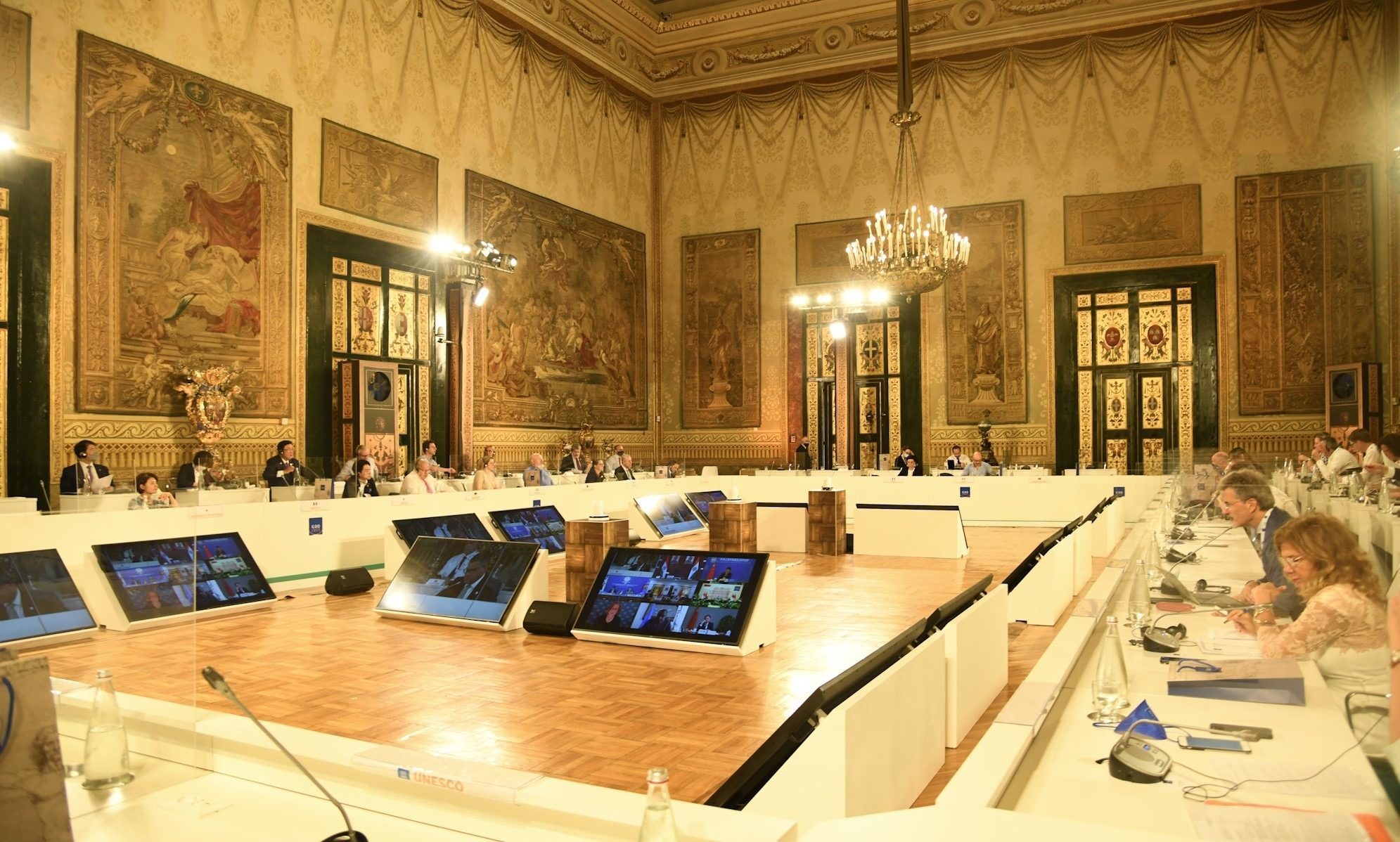The G20 Climate and Energy Ministerial meeting adopts a joint communiqué
July 27th, 2021
The G20 Ministers in charge of Energy and Climate met in Naples on July 23rd, 2021, and adopted – for the first time – a joint final communiqué, which gives momentum to the common mission of the G20 Countries to preserve the global climate and ensure a clean and inclusive energy transition.
The G20 Members agreed that the crisis unleashed by the pandemic reinforced the importance of using science as a compass to guide the development of policies aimed at ensuring the common good. In this sense, it was important that – for the first time – the G20 recognised the fact that the impacts of climate change will be much lower in the context of a global temperature rise not exceeding 1.5° C than in that of a 2° C increase, as affirmed in the “Global Warming of 1.5° C” IPCC Special Report”.
On the basis of this conclusion, the Members of the G20 decided to accelerate action to keep this 1.5° C limit on the rise of global temperatures within reach during the critical decade of the 2020s.
All G20 members agree that this objective will require meaningful and effective actions by all countries, through the development of clear national pathways that align long-term ambition with short- and medium-term goals. Given this premise, G20 members endeavour to allocate an ambitious share of their national recovery and resilience plans – which are currently being monitored across the globe by several organisations including the IEA, supported by the G20 – towards actions conducive to mitigating and adapting to climate change, and have agreed to update or communicate ambitious Nationally Determined Contributions (NDCs) by COP26.
Smart, resilient and sustainable cities have been pinpointed as pivotal in achieving national climate targets and developing effective strategies. They need to be turned into better places to live, in harmony with nature, including through an appropriate use of Nature-based-Solutions and Ecosystem based Approaches.
The joint energy and climate communiqué acknowledges, for the first time at G20 level, the inextricable link between energy production, greenhouse gas emissions and climate change. In this context, the document underlines the importance of clean energy transitions to tackle climate change. On this topic the G20 Members stressed the crucial need to fully employ the potential of existing clean energy solutions, as well as to accelerate the development and deployment of zero and low-emission technologies, including the use of hydrogen.
Furthermore, recognising that the reduction of emissions from methane can be one of the quickest and most cost-effective ways to limit climatechange, the G20 welcomed the work of various institutions and initiatives, including the establishment of the International Methane Emissions Observatory (IMEO).
The G20 acknowledged that this transformation will require the development of an updated concept of energy security and – among others – recognised for the first time that this will depend on reliable and sustainable supply chains of critical minerals and materials as well as semiconductors and related technologies.
In this difficult year, as parts of the world are slowly emerging from the pandemic while others are still severely hit, the necessity to ensure that the transition towards a clean energy and climate neutral future does not leave anyone behind emerged as particularly relevant. This was reflected in the intense work undertaken by the G20 throughout the year towards the need to eradicate energy poverty and to focus efforts on access to energy.
Also with this in mind, developed countries reaffirmed their commitment to the goal of jointly mobilising 100 billion USD annually through to 2025. Furthermore, G20 members called on all Development Finance Institutions, in particular Multilateral Development Banks, to follow up on their commitments to mobilise increased climate finance and step up their efforts to pursue alignment of their portfolio of activities and investments with the Paris Agreement.
A Presidency Statement, attached to the communiqué, stressed the need to accelerate decarbonization in the next decade by phasing out unabated coal, and the need to stop international public financing of unabated coal power generation and phase out inefficient fossil fuel subsidies within a certain date.
Download the documents of the meeting here
